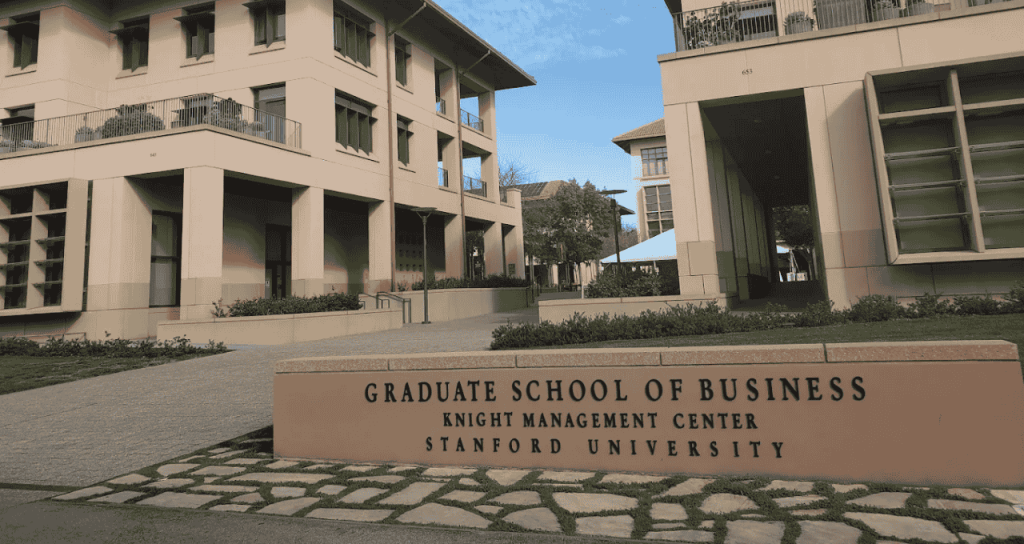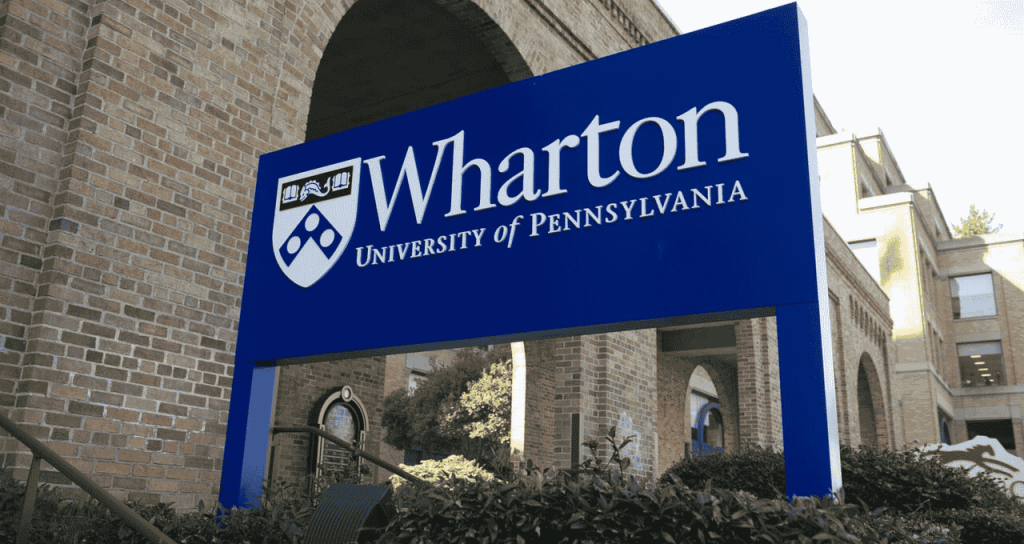
In today’s fast-paced business world, a strong foundation in finance is essential. Whether you’re managing investments, optimizing strategies, or influencing global markets, a Finance MBA gives you the skills to excel. These programs dive deep into finance, enhancing your analytical abilities, financial modeling, and real-world problem-solving skills.
With many Finance MBA programs available, choosing the right one can be challenging. Illinois offers some of the best, with top-ranked programs featuring rigorous curricula, unique specializations, cutting-edge facilities, and access to renowned faculty and extensive alumni networks.
Intrigued by the prospect of a finance career with a starting salary over $100,000? Let’s explore the Top 10 Finance MBA programs in Illinois, each with distinctive offerings to help you master the financial world. Discover the secrets to financial success, one prestigious program at a time!
Why Study Finance MBA Programs in Illinois?

The world of finance is intricate and ever-changing. Earning a Finance MBA equips you with the knowledge and skills to thrive in this dynamic field, paving the way for exciting and lucrative careers. But why should you consider a Finance MBA program in Illinois? Let’s explore the compelling reasons:
Academic Excellence:
- Top-Ranked Universities: Illinois has several universities consistently recognized among the nation’s best for business and finance education. This means rigorous coursework, world-class faculty, and a curriculum that reflects the latest industry trends.
- Diverse Program Options: Illinois offers a variety of Finance MBA programs, catering to different needs and interests. Whether you’re interested in Investment Management, Corporate Finance, or Financial Technology (FinTech), you can find a program that aligns with your career goals.
- Focus on Practical Skills: Many Illinois Finance MBA programs emphasize practical learning through real-world case studies, simulations, and internship opportunities. This hands-on approach ensures you graduate with the skills and experience employers value.
Location Advantage:
- Chicago’s Financial Hub: Illinois, particularly Chicago, is a major financial center. Proximity to leading banks, investment firms, and financial institutions provides unparalleled access to industry professionals, networking opportunities, and internships.
- Lower Cost of Living: Compared to coastal financial hubs like New York or San Francisco, Illinois offers a more affordable cost of living. This can significantly impact your ability to manage student loan debt and your overall financial well-being during your studies.
Strong Alumni Networks:
- Lifelong Connections: Illinois universities foster strong alumni networks within the finance industry. These connections can provide mentorship, career guidance, and job opportunities after graduation.
- Industry Expertise: Leveraging the expertise of successful alumni can give you a competitive edge in the job market. Illinois alumni networks are well-established, creating a supportive and connected community.
You may like to read: Top 5 Finance MBA Programs in California
Overview of Top 10 Finance MBA Programs in Illinois (2025)
Here’s a detailed breakdown of five prestigious universities renowned for their Finance MBA programs:
1. Stanford Graduate School of Business (Stanford University)

Stanford GSB offers a world-class Finance MBA program, known for its innovative curriculum, emphasis on real-world application, and collaborative learning environment.
The core curriculum covers essential finance topics like financial accounting, corporate finance, and investment analysis. Students can then delve deeper through electives in areas like venture capital, financial technology (FinTech), and impact investing.
Specializations:
- Asset Management
- Entrepreneurial Finance
- Investment Banking
- Financial Management
Stanford boasts a powerful alumni network with graduates working at leading financial institutions worldwide. This network provides invaluable mentorship opportunities and opens doors to potential job placements.
Why Stanford?
- Cutting-Edge Curriculum: Focuses on innovation, integrating technology and real-world challenges.
- Entrepreneurial Spirit: Strong emphasis on fostering entrepreneurial thinking and skills.
- Silicon Valley Location: Prime location for FinTech and venture capital opportunities.
- Global Focus: Prepares graduates for success in the international financial landscape.
- Renowned Faculty: Learn from leading finance scholars and industry experts.
Features:
- Full-time, Executive MBA, and MSxF programs.
- Experiential learning through case studies, simulations, and potential project-based learning.
- Access to state-of-the-art financial labs and resources.
- Global study opportunities and exchange programs.
Admission Requirements:
- Minimum Level of Education Completed: Bachelor’s degree from an accredited institution.
- Average GPA: Competitive (specific GPA not officially published).
- GMAT or GRE score: Required, with a strong preference for GMAT for international applicants.
- Minimum Language Test Scores:
- TOEFL: Minimum score of 100 on the internet-based test (iBT).
- IELTS: Minimum overall score of 7.0.
- Duolingo English Test: Minimum score of 120.
2. The Wharton School of the University of Pennsylvania

Wharton’s Finance MBA program is consistently ranked among the best globally. The program offers a rigorous curriculum that emphasizes quantitative analysis, financial modeling, and strategic decision-making.
Students can personalize their studies through a wide range of electives in areas like corporate finance, investment management, and risk management.
Specializations:
- Corporate Finance
- Investment Management
- Real Estate Finance
- Risk Management & Financial Institutions
Wharton graduates form a vast and influential network across the finance industry. This network provides invaluable career opportunities and lifelong connections.
Why Wharton?
- Unparalleled Reputation: One of the most prestigious business schools in the world.
- Depth of Expertise: Exceptional faculty with diverse backgrounds in finance theory and practice.
- Flexibility: Wide variety of electives and customizable program options.
- Global Immersion: Opportunities for international study trips and exchange programs.
- Entrepreneurial Ecosystem: Strong focus on innovation and venture creation within finance.
Features:
- Full-time, Executive MBA, and various specialized Master’s programs.
- Wharton Leadership Development Program for building communication and leadership skills.
- Access to Wharton’s world-renowned faculty and resources.
- Strong emphasis on career services and alumni mentorship.
Admission Requirements:
- Minimum Level of Education Completed: Bachelor’s degree from an accredited institution.
- Average GPA: Competitive (specific GPA not officially published).
- GMAT or GRE score: Required, with a strong preference for GMAT for international applicants.
- Minimum Language Test Scores:
- TOEFL: Minimum score of 100 on the internet-based test (iBT).
- IELTS: Minimum overall score of 7.0.
- Duolingo English Test: Minimum score of 120.
3. Harvard Business School (Harvard University)

Harvard Business School (HBS) offers a world-renowned Finance MBA program, known for its case-method pedagogy and focus on developing strong leadership skills.
The core curriculum emphasizes financial analysis, valuation, and strategic decision-making. Students can then explore specific areas through electives in areas like private equity, investment banking, and sustainable finance.
HBS boasts a powerful and influential alumni network across various industries, including finance. This network provides invaluable connections and career opportunities.
You may like to read: Top 9 Finance MBA Programs in New York City
Why Harvard?
- Case Method Learning: Develop critical thinking and problem-solving skills through real-world case studies.
- Leadership Development: HBS prioritizes fostering strong leadership and communication skills.
- Global Focus: Prepares graduates for success in the international business landscape.
- Renowned Faculty: Learn from leading finance scholars and industry experts.
- Strong Brand Recognition: The Harvard name carries significant weight and prestige.
Features:
- Full-time MBA program only.
- Strong emphasis on teamwork, collaboration, and case discussions.
- Access to Harvard’s vast resources and world-class faculty.
- Global study opportunities and exchange programs.
Admission Requirements:
- Minimum Level of Education Completed: Bachelor’s degree from an accredited institution.
- Average GPA: Competitive (specific GPA not officially published).
- GMAT or GRE score: Required.
- Minimum Language Test Scores:
- TOEFL: Minimum score of 100 on the internet-based test (iBT).
- IELTS: Minimum overall score of 7.0.
- Duolingo English Test: Minimum score of 125.
4. Columbia Business School (Columbia University)

Columbia Business School offers a rigorous Finance MBA program with a strong focus on financial modeling, investment analysis, and global finance.
The core curriculum emphasizes essential finance concepts, while electives allow students to specialize in areas like asset management, financial technology, and emerging markets.
Specializations:
- Asset Management
- Financial Management
- Investment Banking
- Value Investing
Columbia Business School has a well-established alumni network with a strong presence in the financial industry, particularly in New York City. This network provides valuable mentorship opportunities and opens doors to potential job placements.
Why Columbia?
- Location Advantage: Situated in the heart of New York City’s financial district, offering unparalleled access to industry leaders and firms.
- Global Focus: Strong emphasis on international finance and emerging markets.
- Quantitative Skills Development: Rigorous curriculum builds strong analytical and financial modeling skills.
- Entrepreneurial Spirit: Encourages innovation and entrepreneurial thinking within finance.
- Interdisciplinary Approach: Integrates finance with other business disciplines.
Features:
- Full-time, Executive MBA, and various specialized Master’s programs.
- Access to Columbia’s world-class faculty and resources.
- Strong emphasis on career services and alumni mentorship.
- Opportunities for internships and industry collaborations.
Admission Requirements:
- Minimum Level of Education Completed: Bachelor’s degree from an accredited institution.
- Average GPA: Competitive (specific GPA not officially published).
- GMAT or GRE score: Required.
- Minimum Language Test Scores:
- TOEFL: Minimum score of 100 on the internet-based test (iBT).
- IELTS: Minimum overall score of 7.0.
- Duolingo English Test: Minimum score of 125.
5. University of Chicago Booth School of Business

The University of Chicago Booth School of Business offers a Finance MBA program with a strong emphasis on economic theory and quantitative analysis.
The program equips students with a deep understanding of financial markets, risk management, and financial decision-making. Students can further specialize through electives in areas like corporate finance, behavioral finance, and financial econometrics.
Booth boasts a strong alumni network with graduates working in leading financial institutions and investment firms worldwide. This network provides valuable connections and career opportunities.
Why Chicago Booth?
- Quantitative Approach: Strong focus on economic theory, data analysis, and financial modeling.
- Renowned Faculty: World-class scholars and experts in finance theory and practice.
- Entrepreneurial Spirit: Fosters innovation and encourages an entrepreneurial mindset.
- Flexibility: Wide range of electives for customization and specialization.
- Strong Alumni Network: Graduates hold positions at top financial institutions globally.
Features:
- Full-time, Executive MBA, and Weekend MBA programs.
- Emphasis on real-world application through case studies, simulations, and potential industry projects.
- Access to state-of-the-art facilities and resources, including the Behavioral Research Lab.
- Strong career services support and alumni mentorship opportunities.
Admission Requirements:
- Minimum Level of Education Completed: Bachelor’s degree from an accredited institution.
- Average GPA: Competitive (specific GPA not officially published).
- GMAT or GRE score: Required. While both are accepted, GMAT is preferred for international applicants.
- Minimum Language Test Scores:
- TOEFL: Minimum score of 100 on the internet-based test (iBT).
- IELTS: Minimum overall score of 7.0.
- Duolingo English Test: Minimum score of 125.
You may like to read: Top 10 Finance MBA Programs in Boston, Massachusetts
6. Massachusetts Institute of Technology (MIT) Sloan School of Management

MIT Sloan offers a Master of Finance (MFin) program designed for individuals seeking a rigorous and quantitative approach to finance.
Unlike a traditional MBA, the MFin program is shorter (typically 12-18 months) and focuses specifically on finance theory, quantitative analysis, and practical application.
The curriculum emphasizes areas like financial markets, asset pricing, risk management, and financial modeling.
MIT Sloan fosters a strong alumni network with graduates working in top financial institutions, consulting firms, and technology companies. This network provides valuable connections and career opportunities.
Why MIT Sloan?
- Quantitative Focus: Strong emphasis on data analysis, financial modeling, and applied mathematics in finance.
- Technological Integration: Blends finance with technology, preparing graduates for the FinTech landscape.
- Entrepreneurial Spirit: Encourages innovation and fosters an entrepreneurial mindset in financial applications.
- Global Immersion: Opportunities for international study trips and exchange programs.
- Renowned Faculty: Learn from world-class scholars and experts in quantitative finance.
Features:
- Full-time Master of Finance (MFin) program only.
- Emphasis on real-world application through case studies, simulations, and potential industry projects.
- Access to MIT’s renowned faculty and resources, including the Sloan Analytics Lab.
- Strong career services support and alumni mentorship opportunities.
Admission Requirements:
- Minimum Level of Education Completed: Bachelor’s degree from an accredited institution, preferably with a quantitative background (e.g., math, engineering, economics).
- Average GPA: Competitive (specific GPA not officially published).
- GMAT or GRE score: Required, with a strong preference for GMAT for international applicants.
- Minimum Language Test Scores:
- TOEFL: Minimum score of 100 on the internet-based test (iBT).
- IELTS: Minimum overall score of 7.0.
- Duolingo English Test: Minimum score of 125.
7. Kellogg School of Management at Northwestern University

Kellogg offers a Full-time MBA program with a strong finance concentration. This program balances rigorous coursework with a focus on real-world application, teamwork, and leadership development.
The core curriculum covers essential finance topics like financial accounting, corporate finance, and investment analysis. Students can then delve deeper through electives in areas like entrepreneurial finance, investment banking, and behavioral finance.
Kellogg boasts a powerful alumni network with graduates working in leading financial institutions and corporations worldwide. This network provides valuable connections and career opportunities.
Why Kellogg?
- Action-Oriented Learning: Emphasis on applying financial theory to real-world scenarios.
- Strong Teamwork Focus: Develops strong communication and collaboration skills through team-based projects and exercises.
- Leadership Development: Kellogg prioritizes nurturing strong leadership qualities in its students.
- Global Immersion: Opportunities for international study trips, exchange programs, and global coursework.
- Entrepreneurial Spirit: Encourages an innovative and entrepreneurial approach to finance.
Features:
- Full-time MBA program only.
- Strong emphasis on experiential learning through case studies, simulations, and potential global immersion experiences.
- Access to Kellogg’s world-class faculty and resources, including the Center for Financial Markets.
- Strong career services support and alumni mentorship opportunities.
Admission Requirements:
- Minimum Level of Education Completed: Bachelor’s degree from an accredited institution.
- Average GPA: Competitive (specific GPA not officially published).
- GMAT or GRE score: Required.
- Minimum Language Test Scores:
- TOEFL: Minimum score of 100 on the internet-based test (iBT).
- IELTS: Minimum overall score of 7.0.
- Duolingo English Test: Minimum score of 120.
8. Yale School of Management (Yale University)

Yale SOM offers a Full-time MBA program with a robust finance curriculum. The program emphasizes financial analysis, strategic decision-making, and ethical leadership within the finance industry.
The core curriculum covers essential finance topics like financial accounting, corporate finance, and investment management. Students can then personalize their studies through electives in areas like private equity, impact investing, and financial technology (FinTech).
Yale SOM fosters a strong alumni network with graduates working in leading financial institutions, investment firms, and consulting firms worldwide. This network provides valuable connections and career opportunities.
Why Yale SOM?
- Ethical Focus: Strong emphasis on ethical behavior and responsible leadership in finance.
- Global Perspective: Prepares graduates for success in the international financial landscape.
- Focus on Sustainability: Offers courses and opportunities to explore sustainable finance practices.
- Entrepreneurial Spirit: Encourages innovation and entrepreneurial thinking in financial applications.
- Strong Alumni Network: Graduates hold positions at top financial institutions globally.
Features:
- Full-time MBA program only.
- Emphasis on real-world application through case studies, simulations, and potential industry projects.
- Access to Yale SOM’s renowned faculty and resources, including the International Center for Finance.
- Strong career services support and alumni mentorship opportunities.
Admission Requirements:
- Minimum Level of Education Completed: Bachelor’s degree from an accredited institution.
- Average GPA: Competitive (specific GPA not officially published).
- GMAT or GRE score: Required.
- Minimum Language Test Scores:
- TOEFL: Minimum score of 100 on the internet-based test (iBT).
- IELTS: Minimum overall score of 7.0.
- Duolingo English Test: Minimum score of 120.
9. Duke University Fuqua School of Business

Duke Fuqua offers a Full-time MBA program with a strong finance concentration. The program combines a rigorous academic foundation with a focus on teamwork, leadership development, and career preparation.
The core curriculum covers essential finance topics like financial accounting, corporate finance, and investment analysis. Students can then specialize through electives in areas like investment banking, real estate finance, and financial technology (FinTech).
Duke Fuqua boasts a powerful alumni network with graduates working in leading financial institutions and corporations worldwide. This network provides valuable connections and career opportunities.
Why Duke Fuqua?
- Team-Based Learning: Develops strong teamwork and communication skills through collaborative projects.
- Leadership Development: Fuqua emphasizes fostering strong leadership qualities in its students.
- Entrepreneurial Spirit: Encourages innovation and an entrepreneurial approach to business and finance.
- Global Focus: Offers opportunities for international immersion programs and global coursework.
- Strong Career Services: Fuqua provides dedicated career services support for MBA students.
Features:
- Full-time MBA program only.
- Emphasis on experiential learning through case studies, simulations, and potential international immersion experiences.
- Access to Fuqua’s world-class faculty and resources, including the Center for Financial Analysis.
- Strong career services support and alumni mentorship opportunities.
Admission Requirements:
- Minimum Level of Education Completed: Bachelor’s degree from an accredited institution.
- Average GPA: Competitive (specific GPA not officially published).
- GMAT or GRE score: Required.
- Minimum Language Test Scores:
- TOEFL: Minimum score of 100 on the internet-based test (iBT).
- IELTS: Minimum overall score of 7.0.
- Duolingo English Test: Minimum score of 120.
10. New York University (NYU) Stern School of Business

NYU Stern offers a Finance MBA program designed to prepare graduates for success in the heart of the global financial capital.
The program emphasizes financial analysis, valuation, and strategic decision-making in finance. The core curriculum covers essential finance topics like financial accounting, corporate finance, and investment management.
Students can further specialize through electives in areas like asset management, financial technology (FinTech), and global finance.
Specializations:
- Corporate Finance
- Investment Management
- Financial Markets and Quantitative Analysis
- Financial Institutions and Insurance
- Real Estate Finance
NYU Stern boasts a powerful alumni network with graduates working at leading financial institutions on Wall Street and across the globe. This network provides invaluable connections and career opportunities.
Why NYU Stern?
- Location Advantage: Situated in New York City, offering unparalleled access to industry leaders and financial firms.
- Depth of Expertise: Renowned faculty with diverse backgrounds in finance theory and practice.
- Flexibility: Wide variety of electives and specialization options to tailor your education.
- Focus on Innovation: Strong emphasis on FinTech, entrepreneurial ventures, and financial innovation.
- Global Immersion: Opportunities for international study trips, exchange programs, and global coursework.
Features:
- Full-time MBA program, various specialized Master’s programs, and an Executive MBA format.
- Emphasis on real-world application through case studies, simulations, and potential industry projects.
- Access to Stern’s world-class faculty and resources, including the Berkley Center for Entrepreneurship & Innovation.
- Strong career services support and alumni mentorship opportunities.
Admission Requirements:
- Minimum Level of Education Completed: Bachelor’s degree from an accredited institution.
- Average GPA: Competitive (specific GPA not officially published).
- GMAT or GRE score: Required.
- Minimum Language Test Scores:
- TOEFL: Minimum score of 100 on the internet-based test (iBT).
- IELTS: Minimum overall score of 7.0.
- Duolingo English Test: Minimum score of 125.
Career Paths After an Illinois Finance MBA
An Illinois Finance MBA equips you with the knowledge, skills, and network to excel in various rewarding career paths within the dynamic world of finance. Let’s delve into some of the most promising options after earning your Illinois Finance MBA:
Investment Banking:
- Roles: Investment bankers serve as financial advisors, helping corporations and governments raise capital through public offerings, mergers & acquisitions (M&A), and other financial transactions.
- Skills: Strong analytical and problem-solving abilities, expertise in financial modeling, excellent communication and presentation skills, and proficiency in teamwork.
- Potential Employers: Major investment banks like Goldman Sachs, JP Morgan Chase, and Bank of America, as well as boutique investment firms in Chicago and nationwide.
- Salary Range: Starting salaries typically range from $100,000 to $150,000 annually, with potential for significant bonuses.
Private Equity:
- Roles: Private equity professionals invest in non-public companies, aiming for high returns through growth strategies and eventual exits like IPOs or acquisitions.
- Skills: Strong analytical skills, expertise in financial modeling and valuation, and an understanding of venture capital and private equity principles.
- Potential Employers: Leading private equity firms with offices in Chicago and across the country.
- Salary Range: Highly competitive, with starting packages typically exceeding $150,000 annually, including bonuses and carried interest (a share of the profits).
Investment Management:
- Roles: Investment managers oversee portfolios for individuals, institutions, and pension funds, researching potential investments, developing strategies, and managing risk.
- Skills: Strong analytical skills, proficiency in financial modeling and investment research, and a deep understanding of financial markets and instruments.
- Potential Employers: Investment management firms, hedge funds, asset management companies, and wealth management firms.
- Salary Range: Varies based on experience, firm size, and assets under management. Starting salaries can range from $80,000 to $120,000 annually, with potential for significant bonuses.
Corporate Finance:
- Roles: Corporate finance professionals manage a company’s financial resources, including budgeting, forecasting, capital budgeting, and financial risk management.
- Skills: Strong analytical and problem-solving abilities, expertise in financial modeling and valuation, and an understanding of financial markets and corporate strategy.
- Potential Employers: Corporations across various industries, with Illinois offering diverse opportunities in manufacturing, healthcare, and technology sectors.
- Salary Range: Starting salaries can range from $70,000 to $100,000 annually, with potential for growth based on experience and company size.
Financial Technology (FinTech):
- Roles: FinTech combines finance with technology, with roles in product development, financial data analysis, and risk management within FinTech companies. Illinois, particularly Chicago, is a hub for FinTech innovation.
- Skills: Strong analytical and problem-solving skills, understanding of financial markets and regulations, and proficiency in data analysis and technology.
- Potential Employers: FinTech startups, established financial institutions with FinTech divisions, and technology companies focusing on finance.
- Salary Range: Varies based on experience, specific role, and company size. Starting salaries can range from $80,000 to $120,000 annually, with potential for growth in this dynamic field.
Illinois Finance MBA Programs (2025) University Comparison:
| University | Cost of Living (Approx. Value) | Gross Tuition (Annual) | Application Fee | Location | Website URL |
|---|---|---|---|---|---|
| Stanford Graduate School of Business (Stanford University) | $3,700/month | $73,600 | $250 | Stanford, California | gsb.stanford.edu |
| The Wharton School of the University of Pennsylvania | $2,900/month | $78,940 | $200 | Philadelphia, Pennsylvania | wharton.upenn.edu |
| Harvard Business School (Harvard University) | $3,100/month | $73,100 | $210 | Boston, Massachusetts | hbs.edu |
| Columbia Business School (Columbia University) | $3,400/month | $78,128 | $200 | New York City, New York | business.columbia.edu |
| University of Chicago Booth School of Business | $2,700/month | $77,934 | $250 | Chicago, Illinois | chicagobooth.edu |
| Massachusetts Institute of Technology (MIT) Sloan School of Management | $3,200/month | $72,500 (MFin Program) | $150 | Cambridge, Massachusetts | mitsloan.mit.edu |
| Kellogg School of Management | $25,000 – $35,000 | $76,368 | $250 | Evanston, IL | kellogg.northwestern.edu |
| Yale School of Management | $22,000 – $30,000 | $79,000 | $250 | New Haven, CT | som.yale.edu |
| Duke University Fuqua School of Business | $20,000 – $30,000 | $75,000 | $225 | Durham, NC | fuqua.duke.edu |
| New York University Stern School of Business | $35,000 – $45,000 | $82,326 | $250 | New York, NY | stern.nyu.edu |
Conclusion
Illinois offers some of the best Finance MBA programs, with top-ranked universities providing rigorous coursework, diverse program options, and strong alumni networks. These programs prepare students for successful careers in finance, offering practical skills, access to industry professionals, and a lower cost of living compared to other financial hubs.
